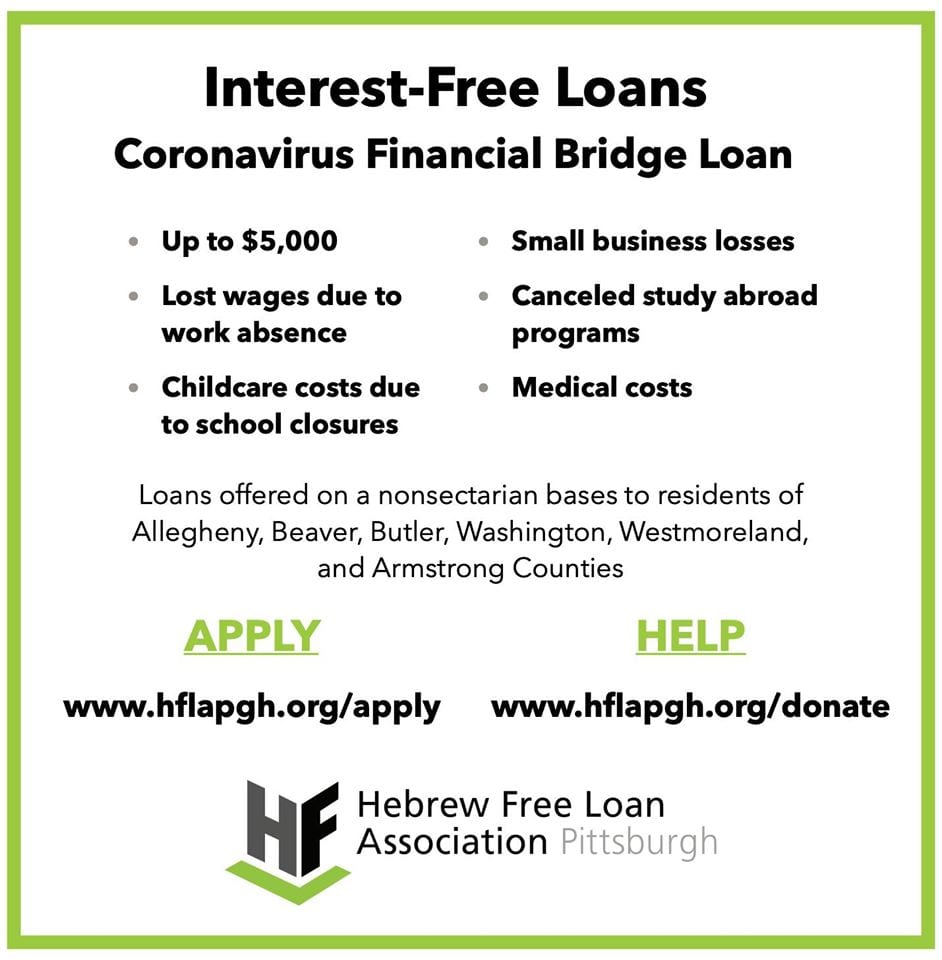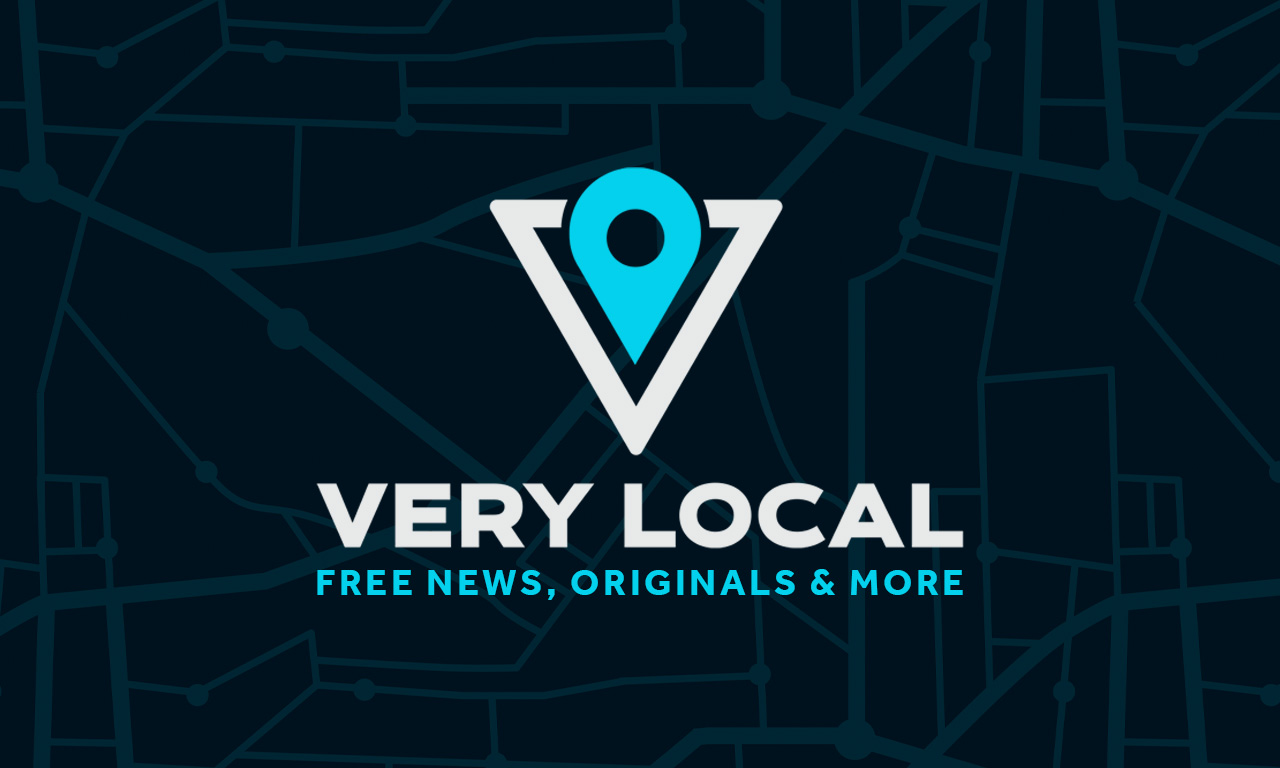It didn’t take long for the Hebrew Free Loan Association to jump into action after they realized the gravity of COVID-19. I called up Aviva Lubowsky, their director of Client and Community Relations and she explained how they got organized so quickly. “On that Monday we started talking as the executive committee and realized that we could help here. By Tuesday, we had a loan program. We rolled it out on Thursday and it’s been nonstop ever since.”
What is the Hebrew Free Loan Association of Pittsburgh?
The Hebrew Free Loan Association is a nonprofit organization, based here in Pittsburgh, that offers interest-free loans to residents of Allegheny, Washington, Westmoreland, Armstrong, Butler and Beaver counties.
Free loans since 1886
From their website:
“In 1886, five men at a Hill District synagogue had money left over from the synagogue’s appeal. They knew a single mother in dire need. They were hesitant to offer her the money because she was a proud, independent person and they did not want to offend her. Nevertheless, they approached her and offered the money as a gift. She said the money would be helpful, but the only way she would accept it would be as a loan that she could repay. That is how the Hebrew Free Loan Association of Pittsburgh was born; it was chartered in 1887 with Simon Shupinsky as the first president.”
HFL has been offering free loans for over 130 years. They’ve been doing this for so long that this isn’t even their first time dealing with a global pandemic. Aviva recently heard from Eric Lidji, the director of the Rauh Jewish Archives at the Heinz History Center about an article he’d found from a century ago that mentioned HFL offering support during the 1918 influenza outbreak.
Coronavirus Financial Bridge Loan Program
In a normal week, HFL might get around 8 applications for loans from people who are looking to buy a car or fix a roof. In the week since they announced their Coronavirus Financial Bridge Loan Program, Aviva says they’ve received over 150 applications, “about half the applicants are small business owners who are trying to stay afloat. There’s another percentage of people who work in industries that are closing down like restaurant and hotel staff and even some non-profit employees.”
“Not all those applicants will turn into borrowers,“ Aviva explained, “this loan is for people who have been on relatively stable financial ground but have lost income due to coronavirus. They also need to have a co-signer who is a resident of Pennsylvania with a credit score of 670 or higher though there’s no credit score limit for the borrowers.” Applicants can request a loan for up to $5,000 that can go toward lost wages, child care costs, small business losses, canceled study abroad programs or medical costs. More information about the loan is available here: https://hflapgh.org/coronavirusloan/
As one of only two part-time employees on staff, this has been a pretty intense time for Aviva, “I’ve been involved with this organization for seven years and I’ve never seen anything like this. I know in the ‘80s and early ‘90s it was a very busy time during the settlement of immigrants from the former Soviet Union. We played a big role in helping them move over their belongings or buy a car or pay for tuition. But there was time to plan for that and it was more spread out over time. This whole program came about in a few nights.”
Coronavirus Financial Bridge Loan Program Details
Website: hflapgh.org/coronavirusloan
- Family income must be less than $115,000
- Interest-free loans up to $5,000
- A co-signer or credit score if 670+ is required
Visit the Hebrew Free Loan association’s Coronavirus Loan page for complete details and application.
https://www.facebook.com/hflapgh/photos/a.363290763832450/1444037079091141/?type=3&theater
Contact Information
- Hebrew Free Loan Association of Pittsburgh Website
- Hebrew Free Loan Association of Pittsburgh Facebook Page
- Phone: 412-422-8868
- Email: [email protected]
More of our coronavirus coverage:







